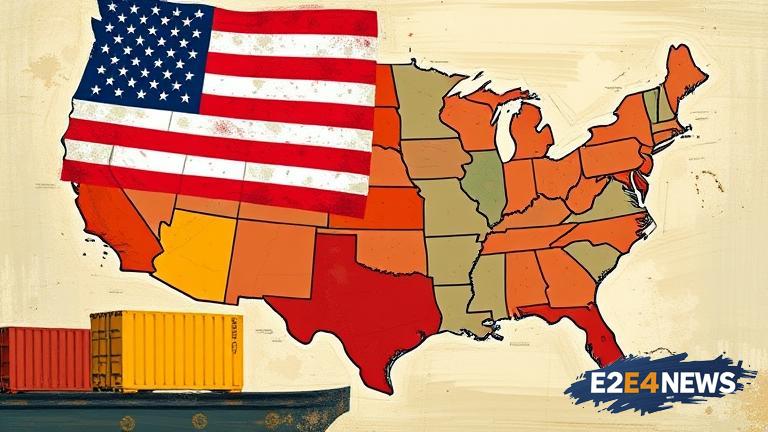The trade policy of the United States under the Trump administration has been a subject of intense debate and scrutiny. Despite claims of winning bigly, the country has suffered significant losses, particularly in its trade relationships with the European Union and Japan. The tariffs imposed by the US on imported goods from these countries have led to retaliatory measures, resulting in a lose-lose situation for all parties involved. The US has been accused of sparking a trade war, which has had far-reaching consequences for the global economy. The trade deficit of the US has continued to widen, despite the administration’s claims of reducing it. The EU and Japan have been particularly affected by the US trade policy, with both countries experiencing significant losses in their exports to the US. The trade tensions between the US and its allies have also led to a decline in investor confidence, resulting in a slowdown in economic growth. The US has been criticized for its protectionist policies, which have been seen as a threat to the global trading system. The World Trade Organization has warned that the US trade policy could lead to a global trade war, with devastating consequences for the world economy. The US has also been accused of violating international trade rules, which has led to a decline in its credibility as a global trade leader. The trade policy of the US has been seen as a major factor in the decline of the US dollar, which has lost significant value against other major currencies. The US has also experienced a decline in its manufacturing sector, despite the administration’s claims of creating new jobs. The trade policy of the US has been criticized for being overly focused on short-term gains, rather than long-term benefits. The US has been accused of neglecting the interests of its allies and trading partners, which has led to a decline in its global influence. The trade policy of the US has also been seen as a major factor in the rise of protectionism around the world. The US has been criticized for its failure to address the root causes of its trade deficit, which has led to a decline in its competitiveness. The trade policy of the US has been seen as a major challenge for the incoming administration, which will need to navigate the complex web of trade relationships and negotiate new trade agreements. The US will need to balance its trade policy with its domestic economic priorities, while also addressing the concerns of its trading partners. The trade policy of the US will need to be more nuanced and sophisticated, taking into account the complexities of the global economy. The US will need to work closely with its allies and trading partners to address the challenges facing the global trading system. The trade policy of the US will need to be more transparent and accountable, with clear goals and objectives. The US will need to invest in its infrastructure and education system, to improve its competitiveness and attract foreign investment. The trade policy of the US will need to be more flexible and adaptable, to respond to the changing needs of the global economy. The US will need to prioritize its trade relationships with its allies and trading partners, to build trust and confidence. The trade policy of the US will need to be more sustainable and equitable, taking into account the needs of all stakeholders. The US will need to work towards a more balanced and reciprocal trade relationship, to benefit all parties involved.





